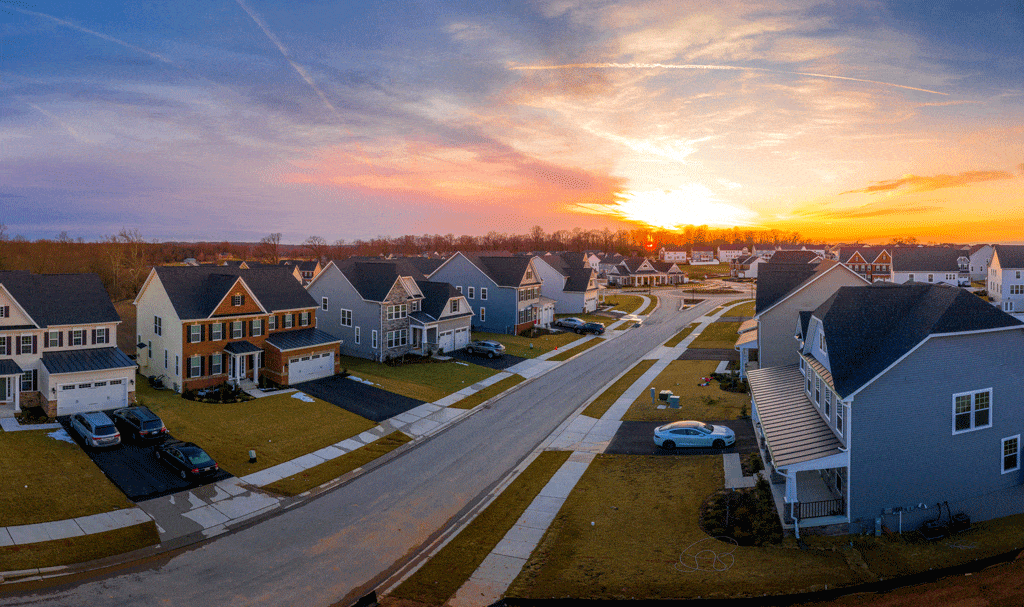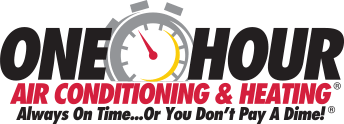
Effortless Compliance: Mastering Residential HVAC Code Requirements
Have you ever wondered about the intricacies of residential HVAC code requirements?
As a homeowner, understanding these regulations is crucial for ensuring your heating, ventilation, and air conditioning systems are up to par.
Not only does this knowledge keep your home safe and efficient, but it also helps in avoiding costly penalties and repairs.
In this article, we delve deep into the world of residential HVAC code requirements. You’ll learn about the latest standards, how they impact your home, and why adhering to them is essential for your safety and comfort.
We’ll guide you through the complexities of these regulations, offering practical advice and expert insights.
Whether you’re installing a new system or upgrading an old one, this article is your go-to resource for all things HVAC.
What are Residential HVAC Code Requirements?
When you think about your home, comfort and safety are likely at the forefront of your concerns.
This is where understanding residential HVAC code requirements becomes essential. These codes are a set of regulations and standards designed to ensure that heating, ventilation, and air conditioning (HVAC) systems in residential properties are installed and maintained safely, efficiently, and effectively.
The importance of these codes cannot be overstated.
They are not just arbitrary rules but are developed based on rigorous research and industry expertise. These standards are in place to protect you, your family, and your investment in your home.
By adhering to these codes, you ensure that your HVAC system operates at peak efficiency, which can lead to significant energy savings.
Moreover, compliance with these codes is often a legal requirement, and failure to adhere can result in penalties, fines, or even more severe legal consequences.
Residential HVAC code requirements cover a broad range of aspects, from the size and type of equipment used to installation practices, ventilation requirements, and energy efficiency standards. These codes are regularly updated to reflect new technologies, environmental concerns, and safety practices.
Staying informed about these changes is crucial for homeowners, especially if you’re considering installing a new system or upgrading an existing one.
Furthermore, these codes also play a pivotal role in environmental conservation. By ensuring that HVAC systems are energy efficient and environmentally friendly, they contribute to reducing the carbon footprint of residential properties.
This aspect is particularly important in today’s world, where environmental sustainability is a growing concern.
HVAC code requirements are a critical element in maintaining a safe, comfortable, and efficient home environment. They are designed to protect homeowners and the environment, making them an indispensable part of responsible homeownership.
Understanding and complying with these codes not only ensures your safety and comfort but also contributes to a greener, more sustainable future.
Understanding the Basics of Residential HVAC Code Requirements
Residential HVAC code requirements are a comprehensive set of standards and regulations that govern the installation, maintenance, and operation of heating, ventilation, and air conditioning systems in residential buildings.
These codes are designed to ensure that HVAC systems are safe, efficient, and reliable. They encompass a variety of aspects, including system design, installation procedures, equipment standards, and energy efficiency.
The Role of Building Codes and Standards
Building codes play a crucial role in the formulation of these HVAC requirements.
They are typically developed by national or international building code organizations and are adopted at the local level. These codes are regularly updated to incorporate the latest safety standards, technological advancements, and environmental considerations.
Understanding and adhering to these codes is crucial for homeowners, contractors, and HVAC professionals alike.
Safety and Efficiency: The Core Objectives
The primary objectives of residential HVAC code requirements are to ensure safety and efficiency.
Safety is paramount, as improper installation or maintenance of HVAC systems can lead to hazards such as fire risks, carbon monoxide poisoning, or electrical accidents. Efficiency is equally important, as it directly impacts energy consumption and costs.
Efficient systems not only save money in the long run but also contribute to reducing the environmental impact of residential heating and cooling.
Navigating Local and National Regulations
It’s important to note that while there are national standards, local regulations can vary significantly.
Homeowners and professionals must be aware of the specific requirements in their area. Local building departments and professional HVAC contractors are valuable resources for understanding these local nuances.
Impact on Homeowners and Contractors
For homeowners, understanding these codes is essential when installing a new system, making renovations, or conducting routine maintenance.
For contractors, knowledge of HVAC code requirements is fundamental to ensuring that their work complies with legal standards and meets professional quality benchmarks.
HVAC code requirements are a critical aspect of home construction and maintenance. They ensure that HVAC systems are safe, efficient, and in line with both local and national standards.
Whether you’re a homeowner looking to upgrade your system or a professional in the field, a thorough understanding of these requirements is essential for ensuring safety, efficiency, and compliance.
Photo By poia6npe6sca at Shutterstock
Why Compliance with Residential HVAC Code Requirements Matters
Ensuring Safety and Preventing Hazards
The foremost reason for adhering to residential HVAC code requirements is safety. These codes are designed to prevent hazards that can arise from improper installation or maintenance of HVAC systems.
For instance, incorrect installation can lead to gas leaks, electrical fires, or even carbon monoxide poisoning in extreme cases.
By complying with these standards, homeowners and professionals mitigate these risks, ensuring a safe living environment.
Enhancing System Efficiency and Performance
Compliance with HVAC codes also plays a vital role in enhancing the efficiency and performance of your system. These standards ensure that HVAC systems are not only installed correctly but are also optimized for energy efficiency.
This means lower energy bills for homeowners and a reduced environmental footprint.
Efficient systems also tend to have a longer lifespan and require fewer repairs over time, which translates to cost savings in the long run.
Legal and Financial Implications
Non-compliance with residential HVAC code requirements can have legal and financial repercussions.
Homeowners may face fines or penalties if their systems do not meet local codes. In the event of an incident related to non-compliance, insurance claims may be denied, leading to significant out-of-pocket expenses.
Furthermore, selling a home with non-compliant HVAC systems can be challenging, as potential buyers or inspectors might raise concerns.
Maintaining Indoor Air Quality
Another critical aspect of compliance is maintaining good indoor air quality. HVAC codes ensure that systems are capable of proper ventilation, filtering out pollutants and maintaining healthy indoor air. This is particularly important for individuals with allergies or respiratory issues.
A well-maintained HVAC system, compliant with code requirements, significantly contributes to a healthier indoor environment.
Future-Proofing Your Home
Adhering to the latest HVAC codes also means that your home is future-proofed against upcoming changes in regulations.
As environmental and safety standards evolve, systems that are already compliant will require fewer adjustments to meet new requirements. This proactive approach saves homeowners from future hassles and expenses associated with major overhauls or system replacements.
compliance with residential HVAC code requirements is essential for ensuring safety, efficiency, legal adherence, and maintaining indoor air quality.
It’s a crucial aspect of responsible homeownership and professional HVAC practice. Understanding and adhering to these codes not only protects homeowners from potential risks but also enhances the overall value and comfort of their homes.
Common Challenges and Solutions in Meeting Residential HVAC Code Requirements
Navigating Complex Code Regulations
One of the primary challenges homeowners face is the complexity of residential HVAC code requirements. These codes can be extensive and sometimes difficult to interpret, especially for those not familiar with technical jargon.
This complexity can lead to confusion about what standards need to be met and how to meet them.
Solution
The best approach is to consult with a professional HVAC contractor who is well-versed in local and national codes. These experts can provide clarity and guidance, ensuring that your system complies with all necessary regulations.
Additionally, homeowners can refer to simplified guides or resources provided by local building authorities.
Balancing Cost with Compliance
Another significant challenge is balancing the cost of upgrades or installations with the need for compliance.
Upgrading an existing system or installing a new one that meets all the latest codes can be a substantial financial investment.
Solution
To address this, homeowners should consider the long-term benefits of compliance, such as energy savings, improved system efficiency, and reduced risk of costly penalties or repairs.
Exploring financing options, rebates, or incentives offered for energy-efficient HVAC systems can also help mitigate upfront costs.
Dealing with Outdated Systems
Many homeowners have older HVAC systems that may not meet current code requirements. Upgrading these systems can be a daunting task, both technically and financially.
Solution
In such cases, it’s crucial to prioritize upgrades based on safety and efficiency.
Homeowners should work with HVAC professionals to identify the most critical aspects that need updating. Sometimes, incremental upgrades can be more manageable than a complete system overhaul.
Ensuring Proper Installation and Maintenance
Proper installation and regular maintenance are key to complying with HVAC codes. Incorrect installation or neglecting maintenance can lead to non-compliance and system inefficiencies.
Solution
Homeowners should ensure that their HVAC systems are installed by licensed and experienced professionals.
Regular maintenance checks by qualified technicians can also help in identifying and rectifying any compliance issues early on.
Staying Updated with Code Changes
HVAC codes and standards are continually evolving, and staying updated with these changes can be challenging for homeowners.
Solution
To overcome this, it’s advisable to subscribe to updates from local building authorities or professional HVAC associations.
These organizations often provide updates on code changes and best practices in the industry.
Navigating the challenges of residential HVAC code requirements can be complex, but with the right approach and professional assistance, homeowners can ensure compliance and enjoy a safe, efficient, and comfortable home environment.
Understanding these common challenges and implementing the suggested solutions will go a long way in maintaining a compliant and efficient HVAC system.
Also read: Ac Unit Frozen Pipe Outside: Quick Fixes For Homeowners
Expert Tips for Compliance with Residential HVAC Code Requirements
Regular Professional Inspections
One of the key strategies for ensuring compliance with residential HVAC code requirements is to schedule regular professional inspections.
These inspections can identify potential issues before they become major problems, ensuring that your system remains in line with current codes.
Solution
Arrange for an HVAC expert to conduct annual or bi-annual inspections of your system. This proactive approach not only ensures compliance but also extends the lifespan of your HVAC system by addressing minor issues promptly.
Staying Informed About Code Updates
HVAC codes and standards are not static; they evolve over time to incorporate new technologies and safety standards. Staying informed about these changes is crucial for ongoing compliance.
Solution
Subscribe to newsletters from local building authorities or HVAC professional organizations. These resources often provide updates on code changes, new regulations, and best practices in the industry.
Investing in Energy-Efficient Systems
Energy efficiency is a significant component of many HVAC codes. Investing in energy-efficient systems not only ensures compliance but also reduces long-term operational costs.
Solution
When upgrading or installing a new HVAC system, choose energy-efficient models that meet or exceed current code requirements.
Look for systems with high SEER (Seasonal Energy Efficiency Ratio) ratings and ENERGY STAR certification.
Proper Installation and Sizing
Improper installation or incorrect sizing of HVAC units is a common issue that leads to non-compliance. An oversized or undersized unit can lead to inefficiency and increased wear and tear.
Solution
Work with a qualified HVAC contractor to ensure that your system is properly sized for your home.
A professional can conduct a load calculation to determine the appropriate size of the HVAC unit needed.
Understanding Local Variations in Codes
While there are national HVAC standards, local variations can exist. These local codes are often tailored to specific climate conditions or regional requirements.
Solution
Familiarize yourself with the local HVAC codes in your area. A local HVAC professional can be a valuable resource in understanding and complying with these local variations.
Compliance with residential HVAC code requirements is essential for the safety, efficiency, and longevity of your HVAC system. By following these expert tips, homeowners can ensure that their systems meet current standards, providing a comfortable and safe living environment.
Regular inspections, staying informed, investing in efficient systems, proper installation, and understanding local codes are key steps towards maintaining a compliant and efficient HVAC system.
Staying Updated with Changes in Residential HVAC Code Requirements
Understanding the Dynamic Nature of HVAC Codes
Residential HVAC code requirements are not static; they evolve over time. This evolution is driven by advancements in technology, changes in environmental policies, and a deeper understanding of health and safety standards.
As a homeowner, it’s crucial to recognize that what was compliant a few years ago may not meet the current standards.
Solution: Regularly review the latest HVAC codes and standards. You can find this information on government websites, professional HVAC associations, or through consultations with HVAC professionals.
Leveraging Professional Expertise
Keeping up with the frequent changes in HVAC codes can be overwhelming for homeowners. HVAC professionals, however, are required to stay updated as part of their certification and licensing process.
Solution: Establish a relationship with a trusted HVAC service provider. These professionals can inform you of relevant changes and suggest necessary upgrades or modifications to your system.
Utilizing Online Resources and Workshops
Many online resources and workshops are available that focus on the latest trends and changes in HVAC technologies and code requirements.
Solution: Participate in webinars, online courses, or workshops offered by HVAC industry leaders. These platforms are often rich sources of information and can help you stay informed about the latest changes in HVAC codes.
Subscribing to Industry Publications
Industry publications are a valuable resource for staying abreast of changes in HVAC code requirements. These publications often feature articles, updates, and expert opinions on the latest trends and regulations.
Solution: Subscribe to industry magazines, newsletters, or online publications. This will ensure you receive regular updates and insights into the HVAC industry.
Engaging in Community Forums
Community forums and local homeowner associations can be excellent platforms for sharing information and experiences related to HVAC compliance and updates.
Solution: Join local community forums or online groups where homeowners and professionals discuss HVAC topics. These forums can provide practical advice and firsthand experiences related to dealing with code changes.
Staying updated with changes in residential HVAC code requirements is essential for ensuring your system remains compliant and operates efficiently.
Utilizing professional expertise, leveraging online resources, subscribing to industry publications, and engaging in community forums are effective strategies to keep abreast of evolving regulations.
By staying informed, homeowners can ensure their HVAC systems meet current standards, providing a safe, comfortable, and energy-efficient home environment.
Photo By Bankrx at Shutterstock
DIY vs Professional Installation in Meeting Residential HVAC Code Requirements
Understanding the DIY Approach
The DIY (Do-It-Yourself) approach to installing or repairing HVAC systems can be tempting for many homeowners. It often appears as a cost-effective solution, and for those with a certain level of technical skill, it can be a rewarding project.
However, when it comes to residential HVAC code requirements, the DIY route can be fraught with challenges.
Challenges of DIY
One of the main challenges is ensuring compliance with the complex and ever-changing HVAC codes. Without professional training, it can be difficult to stay updated with these requirements.
Additionally, improper installation can lead to inefficiencies, increased energy costs, and even safety hazards. The complexity of modern HVAC systems, especially those integrated with smart home technology, further complicates DIY attempts.
The Professional Advantage
Professional HVAC installation offers several advantages, particularly in terms of compliance with residential HVAC code requirements.
HVAC professionals have the training, experience, and tools necessary to ensure that installations meet all legal and safety standards.
Compliance and Expertise: Professionals are well-versed in the latest HVAC codes and can navigate the often complex requirements efficiently.
They also bring a level of expertise that ensures the HVAC system is installed correctly, operates efficiently, and is set up to provide optimal indoor air quality.
Warranty and Longevity: Professional installations often come with warranties and guarantees. If something goes wrong post-installation, you have the assurance of repairs or replacements. Additionally, correctly installed systems tend to have a longer lifespan and fewer issues over time.
Evaluating Costs and Benefits
While DIY might seem less expensive upfront, it’s important to consider the long-term costs and benefits. Non-compliance with HVAC codes can lead to fines, increased utility bills, and costly repairs down the line.
Long-Term Savings: Professional installation, though initially more expensive, can lead to significant savings over time.
A system that is installed correctly and compliant with HVAC codes is more efficient, leading to lower energy bills and fewer repairs.
Safety Considerations
Safety is a paramount concern in HVAC installation. Incorrect installation can lead to serious issues like gas leaks, electrical hazards, or inadequate ventilation.
Professional Safety Standards: Professionals adhere to strict safety standards during installation. They ensure that the system is not only efficient and compliant but also safe for the household.
While DIY HVAC installation might appeal to some homeowners, the complexities of HVAC code requirements and the potential risks involved make professional installation the safer and more reliable choice.
The expertise, compliance assurance, and long-term benefits offered by professional services far outweigh the perceived savings of a DIY approach.
Understanding Advanced Aspects of Residential HVAC Code Requirements
The Impact of Climate on Residential HVAC Code Compliance
In the realm of residential HVAC code requirements, the impact of climate on compliance cannot be overstated.
Different regions have varying climate conditions, which significantly influence the specific HVAC requirements.
For instance, areas with extreme cold or hot temperatures may have stricter insulation and efficiency standards to ensure that HVAC systems operate effectively while minimizing energy consumption.
Regional Variations: In colder climates, the focus might be on heating efficiency, proper insulation, and preventing heat loss.
Conversely, in hotter regions, the emphasis is on cooling efficiency, dehumidification, and maintaining indoor air quality.
These regional differences necessitate tailored approaches to HVAC system design and installation, ensuring that they meet the unique needs of each area while still adhering to broader national standards.
Adapting to Climate Change: With the evolving climate patterns, residential HVAC code requirements are also adapting. This includes considerations for increased efficiency, use of renewable energy sources, and systems that can withstand extreme weather conditions.
Homeowners and professionals must be aware of these evolving standards to ensure their systems remain compliant and efficient in the face of changing environmental conditions.
Technological Innovations and Residential HVAC Code Requirements
The rapid advancement of technology has a profound impact on residential HVAC code requirements.
Innovations in HVAC technology not only offer improved efficiency and performance but also bring new compliance challenges and opportunities.
Smart HVAC Systems: The rise of smart HVAC systems, equipped with sensors and IoT (Internet of Things) capabilities, allows for more precise control of indoor climate and energy usage.
These systems can automatically adjust settings for optimal efficiency and comfort, but they also require adherence to new sets of codes and standards that govern their installation and operation.
Energy-Efficient Technologies: Advances in energy-efficient technologies, such as variable speed compressors and eco-friendly refrigerants, are increasingly being incorporated into code requirements.
These technologies reduce the environmental impact of HVAC systems and are often incentivized through rebates and tax credits, encouraging homeowners to upgrade to compliant, modern systems.
The Role of Inspections and Audits in Ensuring Compliance
Inspections and audits are critical components in ensuring compliance with residential HVAC code requirements. Regular inspections, whether conducted by local authorities or third-party agencies, play a pivotal role in identifying and rectifying any deviations from the set standards.
Importance of Regular Inspections: Regular inspections help in early detection of issues that might lead to non-compliance, such as improper installation or aging equipment.
They also provide an opportunity for homeowners to understand the current state of their HVAC systems and take proactive measures for maintenance or upgrades.
Energy Audits: Energy audits are becoming an integral part of residential HVAC compliance. These audits assess the energy efficiency of a home’s HVAC system and identify areas for improvement.
By conducting energy audits, homeowners can understand how well their systems align with current code requirements and what steps they can take to enhance efficiency and compliance.
Understanding the advanced aspects of residential HVAC code requirements, including the impact of climate, technological innovations, and the role of inspections and audits, is crucial for homeowners and professionals alike.
Staying informed and proactive in these areas ensures not only compliance but also the optimal performance and efficiency of HVAC systems in residential settings.
Also read: Effortless Comfort: Your Guide To Heating And Ac Repair
Exploring the Nuances of Residential HVAC Code Requirements
Adapting HVAC Systems to Diverse Home Architectures
The challenge of adapting HVAC systems to various home architectures is a critical aspect of complying with residential HVAC code requirements.
Different home designs, from traditional to modern, present unique requirements for HVAC system installation and efficiency.
Custom Solutions for Diverse Structures: In older homes, for instance, installing a modern HVAC system can be challenging due to space constraints and the lack of existing ductwork.
Conversely, in newer constructions, the focus might be on integrating smart HVAC technologies. Professionals must tailor their approach to ensure that the system not only fits the architectural style but also meets all code requirements for efficiency and safety.
Innovations in HVAC Technologies and Code Compliance
The HVAC industry is continually evolving, with new technologies emerging that offer improved efficiency and environmental benefits. These innovations often lead to changes in residential HVAC code requirements to ensure that new technologies are safely and effectively integrated into homes.
Emerging Technologies: Technologies like geothermal heat pumps, solar-powered HVAC systems, and ductless mini-splits are becoming more popular.
These systems offer energy efficiency and reduced environmental impact but require specific installation and maintenance expertise to comply with the updated codes.
Environmental Considerations in HVAC Compliance
Environmental sustainability is increasingly influencing residential HVAC code requirements. The emphasis is on reducing the carbon footprint of HVAC systems and promoting energy conservation.
Eco-friendly Practices: This includes the use of environmentally friendly refrigerants, systems with lower emissions, and designs that maximize energy efficiency.
Compliance with these aspects of HVAC codes not only contributes to a healthier environment but also aligns with the growing consumer demand for sustainable home solutions.
Navigating the Permitting Process for HVAC Installations
The permitting process is a crucial step in ensuring compliance with HVAC code requirements.
Navigating this process can be complex, involving multiple steps and documentation to prove that the proposed HVAC system meets all local and national codes.
Permit Application and Approval: Understanding the specifics of the permit application, including required documents and inspections, is essential.
Professionals can provide invaluable assistance in this process, ensuring that all paperwork is accurately completed and that the installation process proceeds smoothly and legally.
The Role of Inspections in Maintaining HVAC Compliance
Regular inspections play a vital role in maintaining ongoing compliance with HVAC code requirements. These inspections help identify potential issues before they become significant problems, ensuring that the system remains efficient and safe over its lifespan.
Importance of Regular Check-ups: Scheduled inspections by qualified professionals can detect inefficiencies, potential safety hazards, and areas where the system may not meet current codes.
This proactive approach is crucial for the longevity of the HVAC system and for maintaining a comfortable and safe home environment.
Understanding the nuances of residential HVAC code requirements is essential for homeowners and professionals alike.
From adapting systems to diverse home architectures and embracing new technologies to considering environmental impacts and navigating the permitting process, each aspect plays a crucial role in ensuring a compliant, efficient, and safe HVAC system in residential settings.
Regular inspections and a proactive approach to maintenance further solidify this compliance, contributing to a comfortable and sustainable living environment.
Photo By Prostock-studio at Shutterstock
Top Strategies for Ensuring Compliance with Residential HVAC Code Requirements
Streamlining Compliance Processes
Streamlining compliance processes is a critical strategy for adhering to residential HVAC code requirements.
This approach involves refining building regulatory processes to eliminate redundancies and overlaps, thereby creating more streamlined and efficient administrative procedures.
This method not only enhances the efficiency of building departments in enforcing construction code requirements but also significantly improves customer service. It leads to financial savings for local governments, citizens, and the private sector by reducing unnecessary bureaucratic hurdles and simplifying compliance processes.
Third-Party Enforcement
Third-party enforcement is a versatile strategy that ranges from comprehensive programs covering all aspects of code compliance to focusing on specific areas such as plan review, special inspections, and performance testing.
In this approach, compliance verification is conducted by individuals or companies with no vested interest in the project.
This impartiality ensures unbiased assessment and adherence to HVAC code requirements, enhancing the integrity of the compliance process.
Advanced Training
Advanced training is essential for ensuring that all stakeholders, including building designers, contractors, tradespeople, code officials, and consumers, are well-informed about the requirements of the energy code.
Enforcement by local or state governments, supported by well-trained energy code inspectors and plan reviewers, is crucial for effective and accurate compliance.
This training ensures that those responsible for enforcement are up-to-date with the latest code requirements and best practices.
Effective Communication
Effective communication is key to successful compliance with HVAC code requirements. It involves establishing clear communication channels among construction team members and effective interactions with local authorities during the permitting process.
Clear communication ensures that all parties involved are aligned with the code requirements and compliance procedures, reducing misunderstandings and non-compliance issues.
Utilizing Technology
The adoption of technology plays a significant role in improving compliance with residential HVAC code requirements.
This includes the use of software, internet-based applications, mobile devices, electronic seals and signatures, and electronic storage.
Technologies such as electronic plan submission, online applications, and fee payments can greatly enhance the efficiency of code compliance processes. They streamline administrative tasks, reduce paperwork, and expedite the compliance process.
These strategies underscore the importance of efficient administrative processes, knowledgeable enforcement, effective communication, and the use of modern technology in ensuring compliance with HVAC code requirements.
By implementing these strategies, stakeholders can significantly improve their adherence to these crucial standards, ensuring safer, more efficient, and compliant residential HVAC systems.
One Hour Air Conditioning & Heating of Dallas: Ensuring Compliance with Residential HVAC Code Requirements
Comprehensive Compliance Assistance
One Hour Air Conditioning & Heating of Dallas stands as a beacon of excellence in ensuring compliance with residential HVAC code requirements.
Their expertise and services are tailored to help homeowners navigate the often complex world of HVAC regulations, ensuring that every installation, repair, and maintenance job adheres to the highest standards.
Expert Installation and Repair Services: They specialize in installing and repairing HVAC systems in strict accordance with the latest HVAC code requirements.
This ensures that every system they work on is not only efficient and reliable but also fully compliant with current regulations.
Advanced Diagnostic and Maintenance Programs
One Hour Air Conditioning & Heating of Dallas offers advanced diagnostic services and regular maintenance programs. These services are crucial for identifying potential compliance issues before they become problematic.
Preventative Maintenance: Regular maintenance checks are essential for ensuring that HVAC systems continue to meet code requirements over time.
Their team of experts conducts thorough inspections and tune-ups, guaranteeing that systems remain efficient, safe, and compliant.
Training and Education
One Hour Air Conditioning & Heating of Dallas places a strong emphasis on training and education, both for their staff and their clients.
Staff Expertise: Their technicians are highly trained and stay updated on the latest residential HVAC code requirements. This continuous education ensures that they are always equipped with the knowledge to provide compliant HVAC solutions.
Client Education: They also believe in educating their clients about their HVAC systems. This includes advising homeowners on the importance of code compliance and how to maintain their systems to meet these standards.
Utilizing Technology for Compliance
Embracing technology, One Hour Air Conditioning & Heating of Dallas uses the latest tools and equipment to ensure compliance with residential HVAC code requirements.
State-of-the-Art Equipment: From advanced diagnostic tools to modern installation equipment, they utilize technology to enhance the precision and efficiency of their services, ensuring that every aspect of their work meets or exceeds code requirements.
Local Presence and Accessibility
One Hour Air Conditioning & Heating of Dallas is deeply rooted in the Dallas area, making them highly accessible to local residents.
They serve a wide range of locations, including Addison, TX, Allen, TX, Carrollton, TX, Dallas, TX, Frisco, TX, Irving, TX, Lewisville, TX, McKinney, TX, Plano, TX, Richardson, TX, and The Colony, TX.
Easy Access for Local Homeowners: Their widespread presence across these locations means that professional, code-compliant HVAC services are just a phone call away for a large number of homeowners.
For more information about their services, client reviews, and specific location details, visit their Google My Business page.
One Hour Air Conditioning & Heating of Dallas is a vital resource for homeowners seeking to ensure their HVAC systems comply with residential HVAC code requirements.
Their combination of expert services, advanced technology, and local accessibility makes them a top choice for residents in the Dallas area.
Conclusion
Navigating the complexities of residential HVAC code requirements can be a daunting task for any homeowner.
However, understanding these requirements is crucial for ensuring the safety, efficiency, and legal compliance of your home’s heating, ventilation, and air conditioning systems.
From the importance of adhering to these codes for safety and efficiency to the role of professionals like One Hour Air Conditioning & Heating of Dallas in ensuring compliance, it’s clear that being informed and proactive is key.
Remember, regular maintenance, staying updated with code changes, and seeking professional assistance when necessary are not just recommendations but essential practices.
By doing so, you not only ensure your home’s HVAC system is up to code but also contribute to a safer, more energy-efficient, and environmentally friendly living space.
As we conclude this comprehensive guide on residential HVAC code requirements, let’s ponder a crucial question: How prepared are you to ensure your home’s HVAC system meets the latest residential HVAC code requirements, and what steps will you take to achieve this
compliance?
Photo By Afi Hermatova at Shutterstock
FAQs
1.What are Residential HVAC Code Requirements?
Residential HVAC code requirements are regulations and standards set to ensure the safe, efficient, and effective installation and operation of heating, ventilation, and air conditioning systems in residential properties.
These codes cover aspects like system design, installation procedures, equipment standards, and energy efficiency.
2.Why are Residential HVAC Code Requirements Important?
These requirements are crucial for ensuring the safety and efficiency of HVAC systems in homes. They help prevent hazards, reduce energy consumption, and ensure that systems are environmentally friendly and cost-effective in the long run.
3.How Often Do Residential HVAC Code Requirements Change?
HVAC code requirements can change periodically, often influenced by technological advancements, environmental policies, and safety research. It’s important for homeowners and professionals to stay updated with these changes to ensure ongoing compliance.
4.Who Enforces Residential HVAC Code Requirements?
Local building departments and government agencies typically enforce these requirements. Compliance is often checked during inspections for new installations, renovations, or routine maintenance.
5.Can I Install an HVAC System Myself and Still Comply with the Codes?
While DIY installation is possible, it’s challenging to ensure compliance with all the residential HVAC code requirements without professional knowledge and experience. It’s recommended to hire a licensed HVAC contractor for installation.
6.What Happens if My HVAC System Doesn’t Meet Code Requirements?
Non-compliance can lead to various consequences, including fines, legal penalties, and the need for costly modifications. In some cases, it can also result in safety hazards and increased energy costs.
7.Are Residential HVAC Code Requirements the Same Everywhere?
While there are national standards, local variations can exist based on regional climate conditions and specific local regulations. It’s important to check with local authorities for the specific requirements in your area.
8.How Can I Find Out About the HVAC Code Requirements in My Area?
You can contact your local building department or a professional HVAC contractor in your area. They can provide the most current and relevant information regarding local HVAC code requirements.
9.Do Residential HVAC Code Requirements Affect Indoor Air Quality?
Yes, these codes often include provisions for ventilation and air filtration, which are critical for maintaining healthy indoor air quality in residential spaces.
10.What Role Do Professionals Like One Hour Air Conditioning & Heating of Dallas Play in Ensuring Compliance?
Professionals like One Hour Air Conditioning & Heating of Dallas are crucial in ensuring compliance.
They have the expertise to install, repair, and maintain HVAC systems in accordance with the latest code requirements, ensuring safety and efficiency.
See our most recent blog on this topic here.
Check out our reviews here
Photo By tokar at Shutterstock









